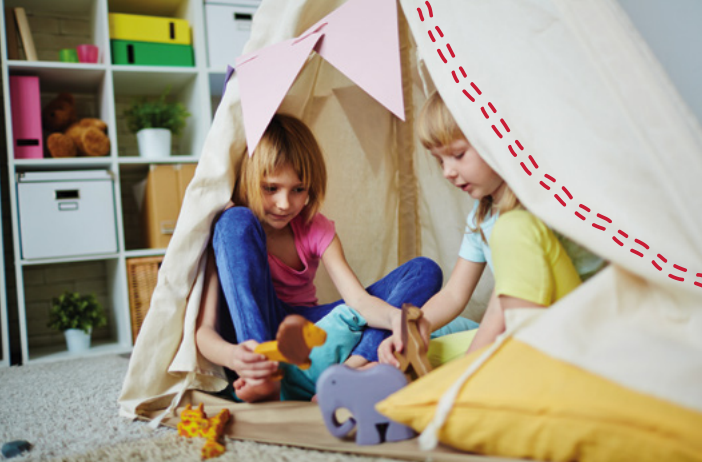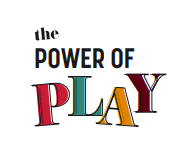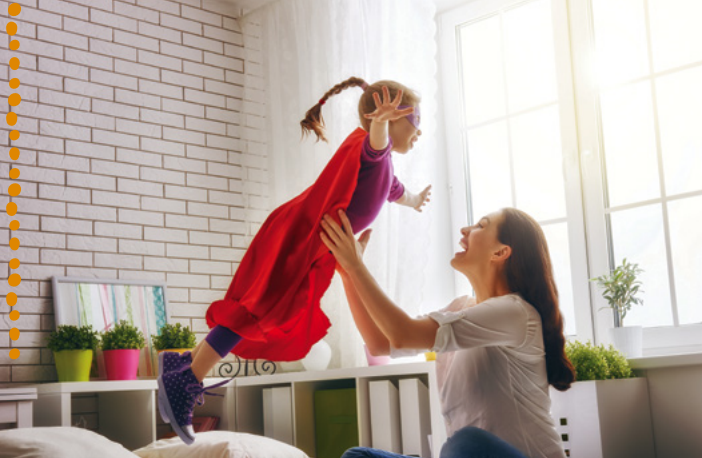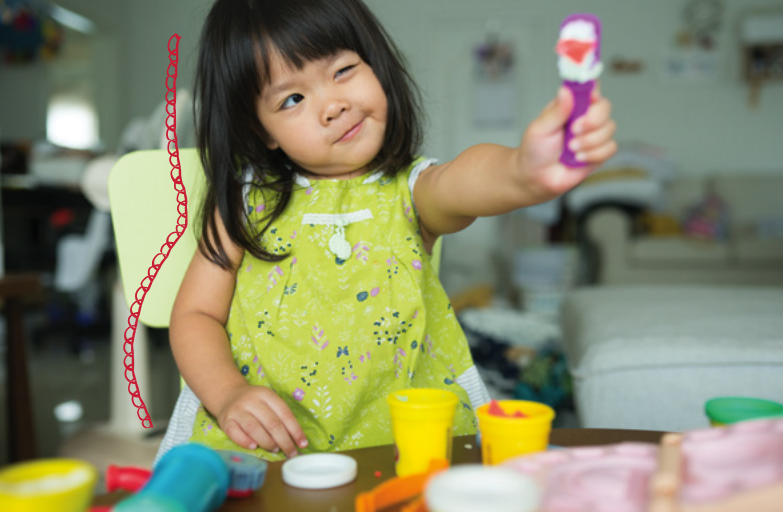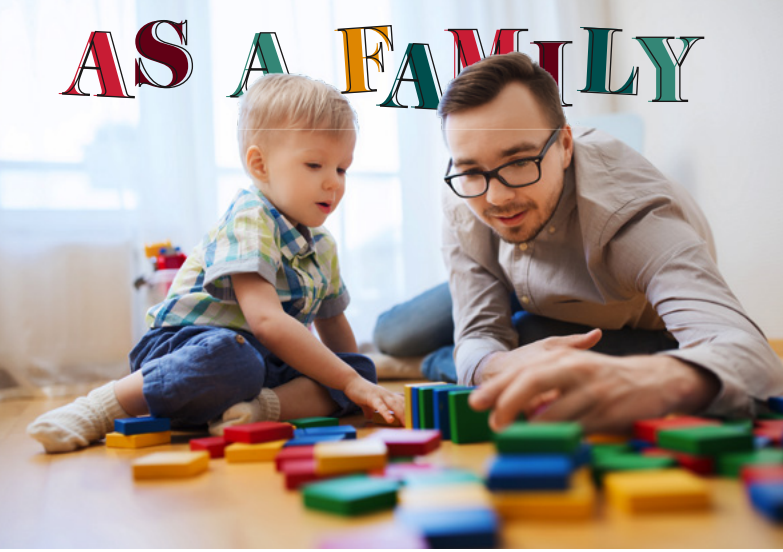Take a trip back in time to your childhood and think about how you loved to spend your days.
Many of us can remember joyful, uninterrupted hours of play — whether it was spent building LEGO creations, constructing a fort in the woods or dreaming up imaginary worlds for our dolls.
Flash forward to today’s jam-packed schedules, increased academic demands and competitive athletics, and it’s easy to see how many kids might be missing out on much-needed time for unstructured play.
In fact, research shows that time for unstructured play has been steadily decreasing at an alarming rate.
Freedom to learn and grow
Not only is free play enjoyable for kids, it’s also beneficial — and, some argue, necessary — for a child’s well-being.
Recent research has documented the many developmental and mental health benefits of unstructured play.
The American Academy of Pediatrics describes free play as “important for healthy brain development.”
As children grow, they require opportunities to learn and practice new skills. Unstructured playtime gives kids a chance to try out adult roles (such as teacher, doctor or parent) or even act out their fears in safe, imaginary contexts of their own creation, a process that helps kids develop coping skills, researchers say.
Lisa Hansen, a mental health specialist and counselor for Rosemount public schools, agrees.
“Truly unstructured playtime empowers kids to explore their world,” she said. “They can decide for themselves what to do and how to do it.”
Through unstructured play (ideally within safe boundaries), children gain opportunities to develop a sense of control, too.
If given a bit of freedom, they begin to establish their own worlds. Kids start to negotiate roles and create their own structure and rules. They engage in self-regulation and problem-solving.
Parental involvement in play can be a hindrance, experts say, because kids need to be allowed to work out the details of their play.
If adults always step in to solve conflicts or structure activities, kids don’t get the benefit of practicing all those valuable skills on their own. And that, researchers say, can cause a long-term lack of confidence or even anxiety.
Several key studies, in fact, have correlated the loss of unstructured playtime with the recent increases in childhood anxiety and depression, beginning as early as elementary school.
Hansen, who recently returned to elementary school counseling after a 10-year hiatus, has seen the phenomenon in her work. She used to see anxiety in elementary children only occasionally, but now the number of anxiety cases she sees has “at least doubled.”
Many times, half of Hansen’s work day is spent working with kids who are experiencing anxiety.
Finding balance
Author Julie Lythcott-Haims, in her book, How to Raise an Adult, explains how free play can support healthy childhood development, including benefits that extend into adulthood: When kids are routinely allowed unstructured playtime, it nurtures their sense of curiosity about the world and builds organizational skills that can help in school and, eventually, the workplace (and beyond).
And yet, when it comes to discussions about how to support our kids in developing life skills and providing a variety of experiences, it’s not an all-or-nothing approach.
Experts like Hansen aren’t downplaying the advantages of athletics and other organized activities. Teamwork, conflict resolution, self-discipline and perseverance are all critical strengths that can be developed through sports and extracurricular activities.
It’s all about balance, yet another life skill parents can model for children, by making sure there’s time for kids to create, imagine and dream — in other words — to play.
And, of course, the joy of play isn’t reserved for children.
Parents who join in playing with children benefit, too.
According to the American Academy of Pediatrics, “Play offers parents a wonderful opportunity to engage fully.”
The AAP claims that parents learn to communicate more effectively with their children because they’re given a peek into their child’s world.
(Indeed, the increasingly popular practice of play therapy relies on the strategic use of child’s play as an important form of communication and therapy delivery.)
Meredith Sinclair, author of Well Played: The Ultimate Guide to Awakening Your Family’s Playful Spirit, encourages light-hearted, simple ways to integrate play into daily routines, including kitchen dance parties, parents-versus-kids Nerf wars and even backyard graffiti projects.
“We all want to make the most of the moments we have together as a family,” Sinclair says in her book. “And the best moments are usually the most playful ones.”
Battling boredom
Although unstructured playtime seems like a great idea, parents may dread hearing “I’m sooooo booooored” from their children when they’re given nothing to do.
Don’t fear these claims of boredom, however urgent they may seem, experts caution.
When parents allow kids to be bored — and resist the urge to remedy the problem with screen time or organized activities — kids often move past boredom and end up getting really creative.
They’ll invent games with made-up, complex, ever-changing rules. They might create their own scavenger hunts or design their own dance routines.
They’ll plot escapes from rogue zombies or discover hidden treasure in the basement.
Kids can be quite surprising in their ingenuity.
In her book, Sinclair says, “Play is the catalyst for all art, invention, new connections and innovation. Play ignites our minds in ways only it can.”
Making play a priority
And yet, in the crazy rush of everyday life, it can feel like there’s just no time for play.
So, as silly as it may seem, parents might have to build time into family schedules for unstructured play.
Hansen recommends parents think purposefully about the culture of their families and the climate of their homes. Hansen advises, and research supports, that an emphasis on family time needs to remain important throughout childhood, not just the early years.
“Take a step back, look at the big picture, weigh priorities,” she said. “Is it OK to take a season off and not be in anything? Be brave and do what you feel is right for your family, even if it isn’t popular.”
While we want the best for our kids, and want to give them every opportunity, what’s really best may be more downtime with you — to play, to explore and to laugh together.
Laura Ramsborg is a licensed K-12 reading specialist, middle school teacher and freelance writer. She is a mother of two daughters and lives in Bloomington. Follow her on Twitter at @MsRamsborgReads.
Minnesota Parent may earn a small commission for any affiliate links to any products or services from this website.



